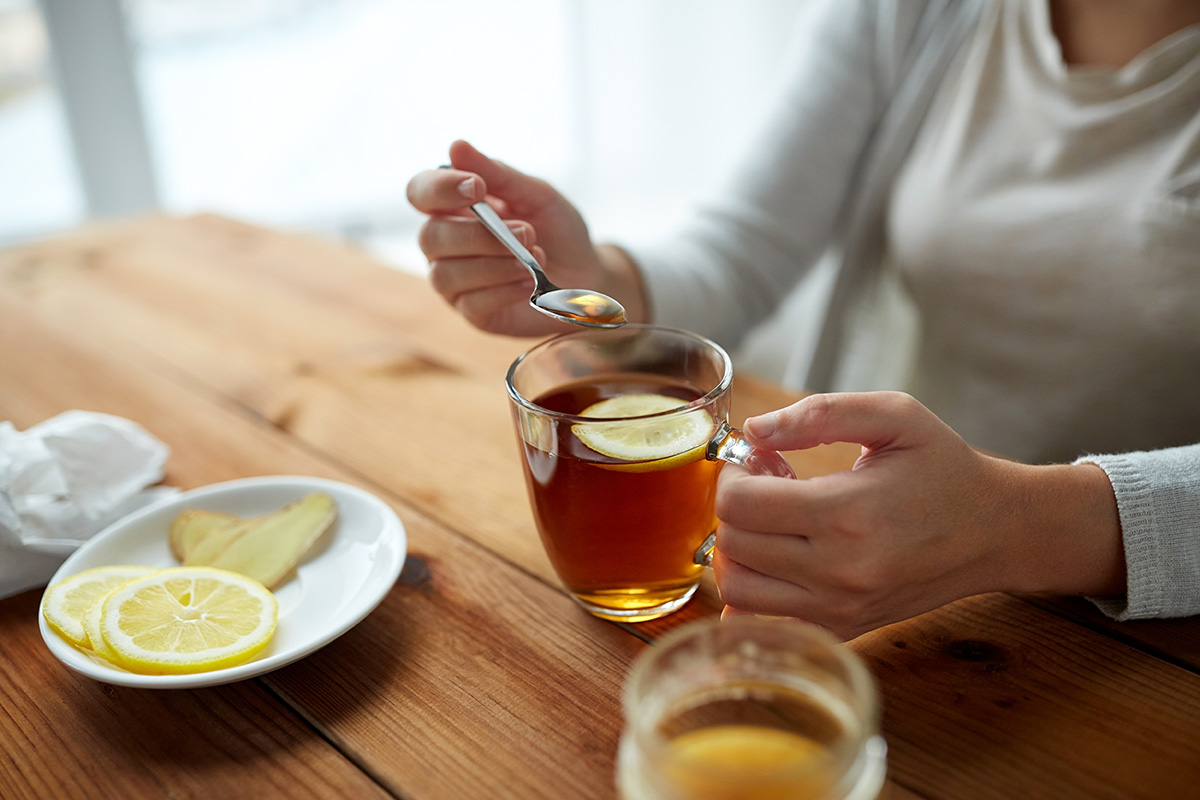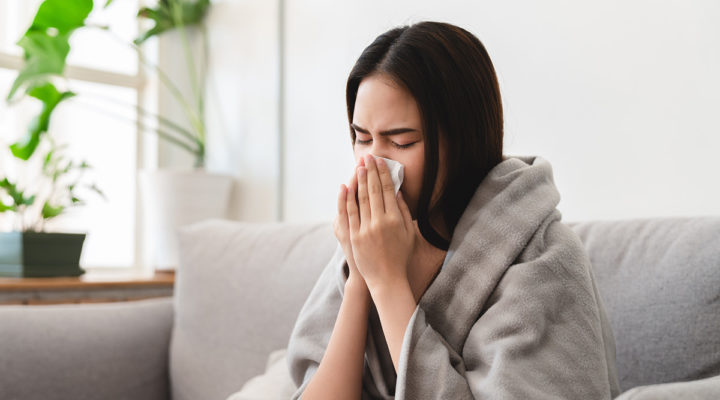Is Honey Really an Effective Cold Remedy?

Drizzled onto a hot bowl of porridge or used to sweeten tea, honey is one of those kitchen cupboard staples that’s incredibly useful year-round. But aside from adding depth to the flavour of our food, humans have turned to this viscous syrup for its medicinal purposes for thousands of years.
In traditional Chinese medicine, honey has long been touted for its wellness properties. There are mentions of raw natural honey as a type of healing balm in the Bible and early texts by the Greek philosopher Hippocrates. In fact, the ancient Greeks were so fond of it, they described nature’s golden goodness as ‘food of the Gods’.
In recent decades, honey has been touted as a remedy for winter cold and flu symptoms. So is a spoonful of the stuff a bonafide cold cure, or just an old wive’s tale? We asked a pharmacist to give us the buzz.

Does honey have any benefits for colds and flu?
Although honey won’t ‘cure’ a cold as such, research has found that it can provide relief from one of the most irritating symptoms – a sore and tickly throat. The reason is all down to honey’s decumlent effect.
“When you have a tickly cough, what you’re actually experiencing is irritation to your upper or lower respiratory tract. Honey can be useful as it coats the inflamed throat and acts as a lubricated barrier,” explains Abbas Kanani, pharmacist at Chemist Click.
Traditional over-the-counter cough mixture is thick and gooey for this reason. “Medicinal syrups are basically made from glycerol and sugar,” explains Kanani, “but honey has further benefits because it’s slightly more viscous and has antimicrobial properties too.”
Studies have found that raw honey’s powerful antimicrobial profile can help to kill off bacteria and aid the healing process on cuts and wounds. “To a certain extent, the antimicrobial properties support immunity, but are they going to work fast enough to squash a cold overnight? Probably not,” clarifies Kanani.
“Eating honey regularly is more likely to contribute to your long-term overall wellbeing. Unfortunately, you can’t ‘boost’ your immune system by consuming it overnight.”
Still, it can really help if you want to avoid a tickly throat from derailing an upcoming work presentation. A 2020 systematic review of 14 different studies found that honey may even be a better treatment for coughs and colds than over-the-counter medicines.
Researchers from Oxford University’s Medical School and Nuffield Department of Primary Care Health Sciences collected existing data to determine honey’s effect on upper respiratory tract infections (URTIs). These are infections of the throat, nose, pharynx, larynx, sinuses and trachea.
“Honey was superior to usual care for the improvement of symptoms of upper respiratory tract infections,” the lead researchers wrote in the journal BMJ Evidence-Based Medicine.
“It provides a widely available and cheap alternative to antibiotics,” they concluded. The researchers also highlighted that honey could help efforts to slow the spread of human and animal resistance to antibiotics too.
Antimicrobial resistance is a real threat to our health and environment. Overuse of antibiotics can lead to germs like bacteria and fungi developing the ability to defeat the drugs designed to kill them. It can also pollute and contaminate our oceans, altering the aquatic environments for the sealife that live there.
As well as helping to soothe sore throats, research has found that honey may also have the power to kill certain strains of bacteria, including E. coli and salmonella. A specific type of raw honey from New Zealand, called Manuka, has also been found to fight off bacteria that can lead to staph infection.

What to do if you’re feeling under the weather this winter
The good thing about honey is that, unless you’re diabetic, there’s no harm in taking a teaspoon to see if it helps to lessen your symptoms.
According to the National Institute for Care and Excellence, the average adult gets around two to three colds per year. “We’re all susceptible to getting sick, particularly at this time of year,” says Kanani.
“While there are lots of cold and flu ‘remedies’ out there, my advice is always to drink lots of water and get lots of rest.”
He continues: “Painkillers like paracetamol can help with aches and pains, but often with seasonal colds, it’s about resting up until you feel better.”


















